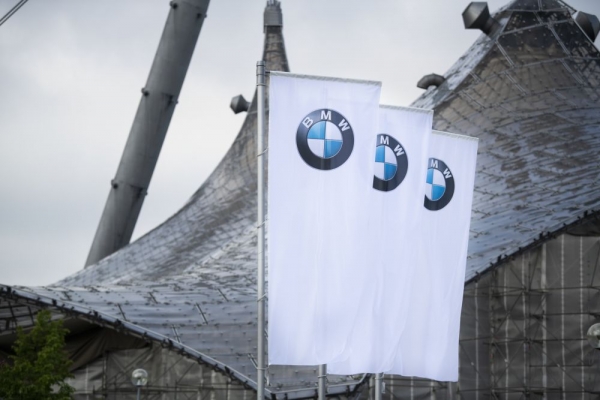16.5.2019 Munich. The BMW Group is expanding as a pioneer of electric mobility, your range of electrified vehicles with high-pressure. In two years, the company will offer five fully-electric series-production vehicles:
In addition to the BMW i3, of which more than 150,000 units have been produced, starting this year, the production of the fully electric MINI in plant Oxford, in 2020, following in the Chinese Shenyang, the fully electric BMW iX3 and 2021, then the BMW iNEXT, which is manufactured in Dingolfing, and BMW i4 from the factory in Munich.
Together with the comprehensive fleet of Plug-in hybrid, the BMW Group has the widest range of electrified vehicles in the competitive environment. This year, the salon was at the Geneva motor show, the revised and with greater electric range equipped with a Plug-in Hybrid version of the BMW 3 series, BMW 7 series and BMW X5 series and the new BMW X3 will be presented. Shortly thereafter, the revised Plug was followed by in Shanghai-in Hybrid Version of the BMW X1, produced locally for the Chinese market long-wheelbase version. This diversity in the electrified drive concepts underlines the importance of openness to new technologies on the way to sustainable mobility.
“Our market is global and we want to inspire people around the world with our products – don’t patronize. Our flexible electric strategy, the different regions can operate, underlines this approach. Because the introduction of alternative drives is also in the different regions of the world with a different speed,“ stressed the Chairman of the Board of management of BMW AG Harald Krüger on Thursday to the annual General meeting of the company in Munich. “Technological openness is crucial in order to be on the regulatory requirements and customer requirements in different markets,” he continued.
Already by the end of next year, the BMW Group brings a total of more than ten new or with the fourth technology Generation (“Gen 4”) of the electric drive revised models on the market – fully electric and Plug-in Hybrid models. By 2025 this number is expected to rise to at least 25 electrified models – half of which will be fully electric.
“Openness to technology, therefore, means that we improve our already fuel-efficient internal combustion engines even further. In addition, we are committed to E-mobility with all-electric vehicles and Plug-in hybrids and invest in new technologies such as the fuel cell. To put a technologically everything on one card, is, in our view, the wrong way, and for prosperity in Germany dangerous,“ says Krüger.
The BMW Group has always stood up for emission-free mobility and their effective promotion. The requirements of this mobility of the future are multi-layered. It is the only correct solution, covering all mobility requirements of the customers in all over the world. Who lives, for example, in rural regions, the other technological solutions for the mobility of people living in the city.
How strong a role Plug-in Hybrids in emission-free mobility in cities can play, it shows an approach from the Netherlands: Together with the city of Rotterdam, the BMW Group has carried out a pilot project, the electric driving share of Plug-in hybrid vehicles in the city. First results show that the participating customers return about 90% of the routes in a specifically defined Zone, a so-called eZone, within the Rotterdam electric.
The highlights of Plug-in Hybrid, both an important building block in the ramp-up of E-mobility, as well as in the long term is required for customers in need of flexibility. The BMW Group has a strong interest in user behaviour to increase the share of electrically driven kilometres more.
Kruger continues: “It is up to all of us, to our children a better life, and to hand over the world. We bring the right products to the market and have set ourselves the goal, starting in the year 2020 for our locations around the world exclusively with electricity from renewable energy sources to buy. By 2020 we want to reduce the CO2 emissions of our new vehicle fleet in Europe by at least 50 percent compared to 1995. By the end of 2018, we had already reached 42 percent.“


BMW AG, annual General meeting in 2019 (photo: BMW AG)